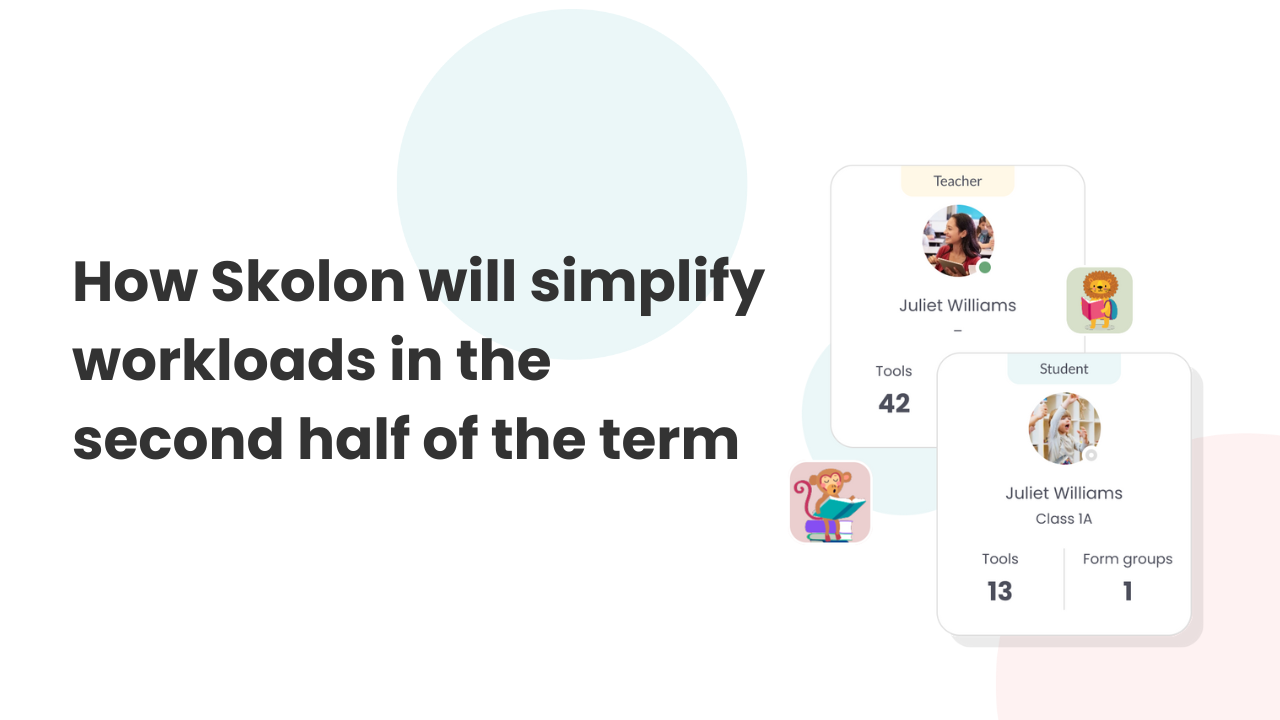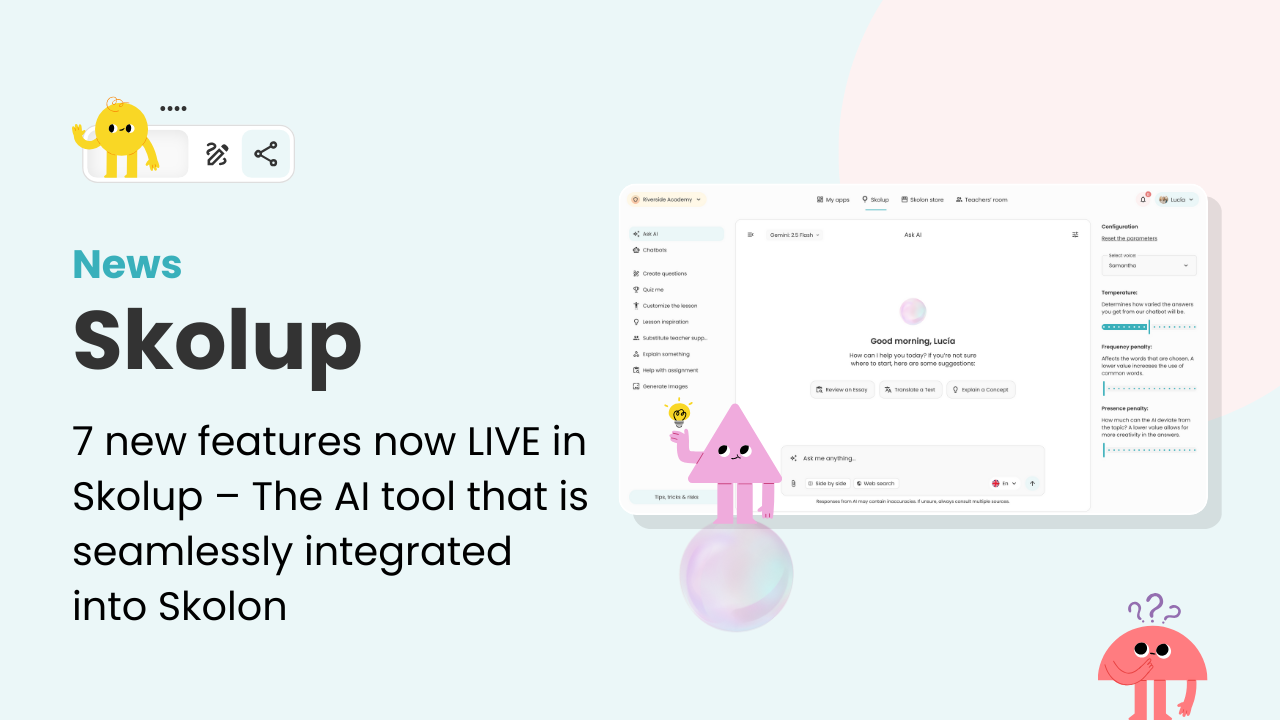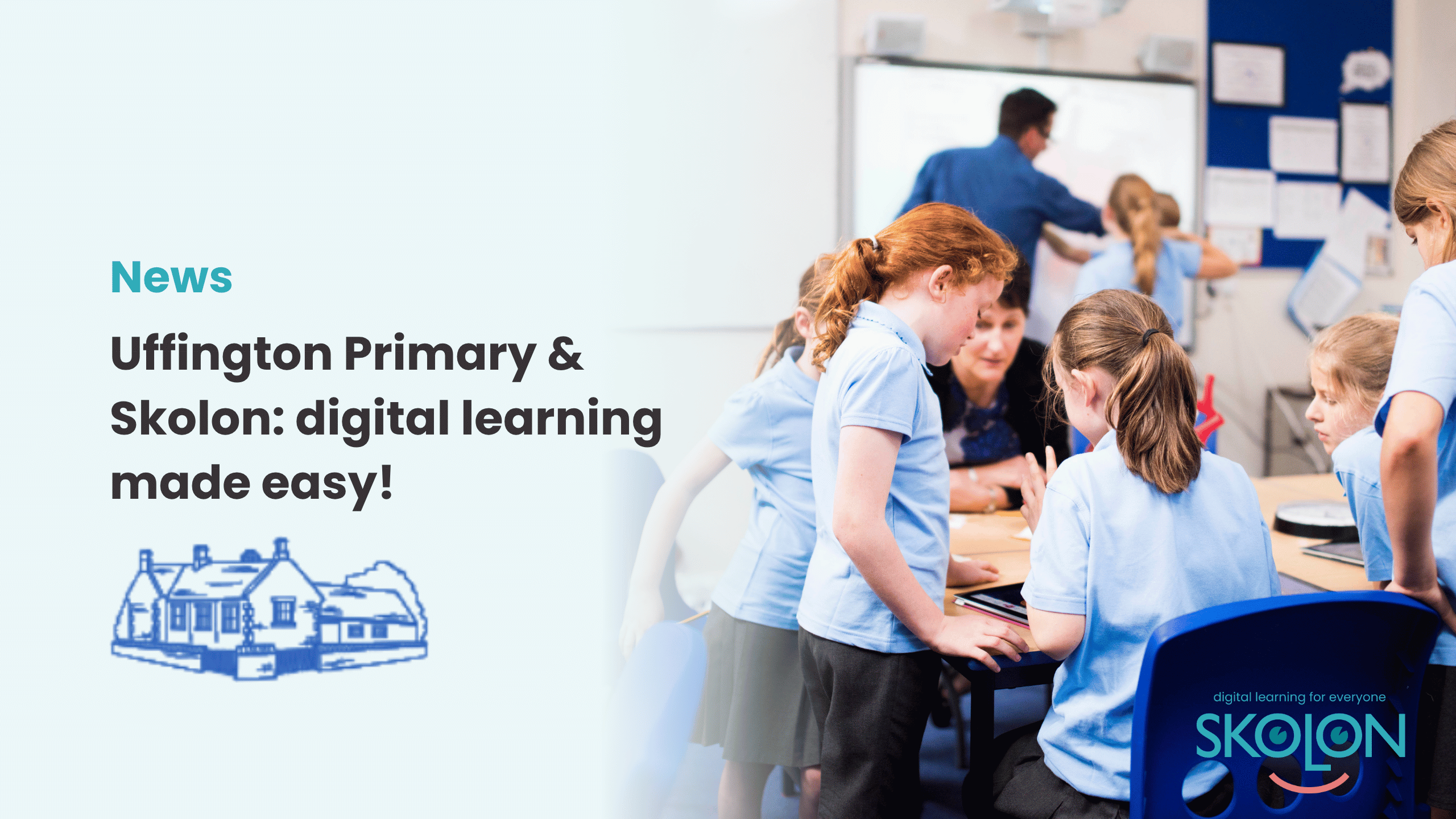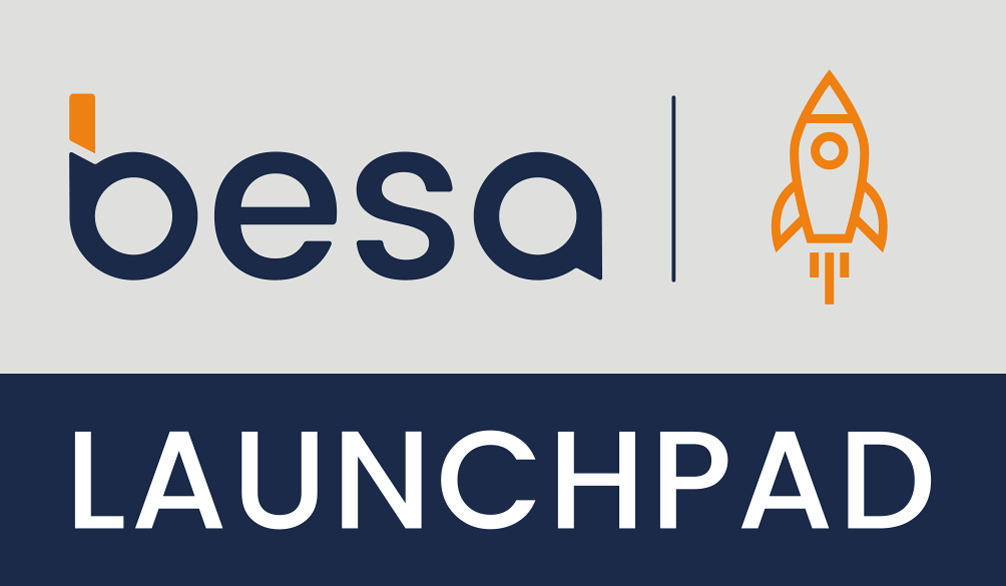Skolon: clarity, simplicity, and tangible benefits in digital education
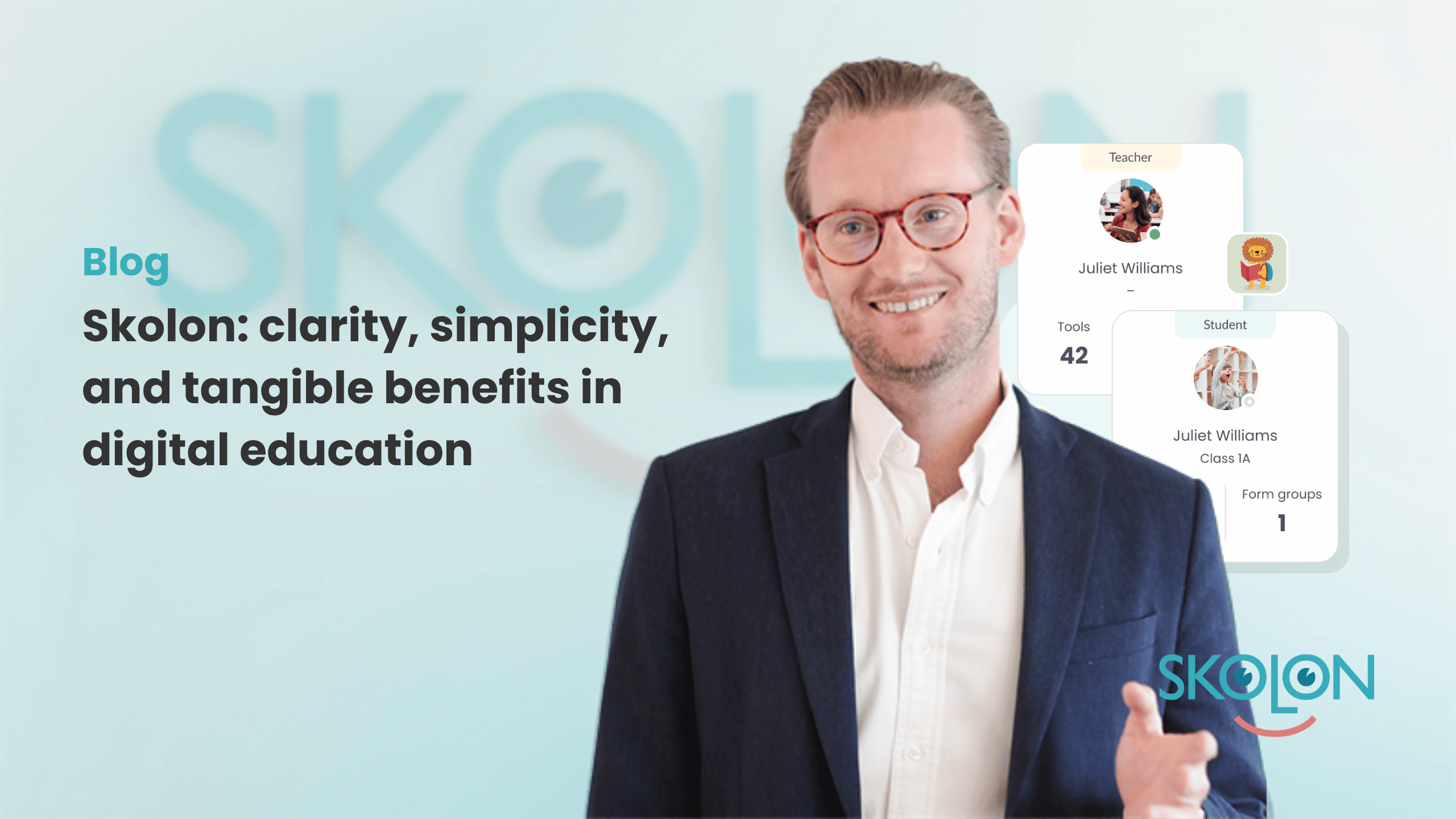

Written by: Maja Stenberg
In a world increasingly shaped by digital tools, how do we integrate technology without over- complicating things? Education is one arena where this challenge is particularly visible, but it’s also one that holds valuable insights for anyone responsible for introducing new systems, be it in schools or in business. Skolon, led by CEO Oliver Lundgren, is an example of what can happen when digital change is approached with a practical touch and a focus on genuine user experience.
Skolon’s founding idea is both bold and straightforward: everyone should have access to digital learning, without headaches. “We achieve this through our platform, which gathers all digital school tools and educational materials in one place, with a single login and accessible with one click,” Oliver says. It’s a concept that could just as easily apply in a business setting: cut through digital clutter and make resources visible and accessible.
For educators (and, by parallel, for organisational teams), this approach cuts down on wasted time. “Teachers and students were, on average, losing ten minutes per lesson just trying to remember the right login credentials, navigate to the correct tools, and deal with technical issues.” With Skolon, these frustrations have given way to a simpler routine. The tools aren’t only gathered in one place; they also work together. No one is left navigating a maze when they should be focusing on getting things done.
Time as the most valuable asset
The practical impact for the +875,000 users of Skolon is clear: less energy spent wrestling with technology means more time for things that matter, whether that’s classroom teaching or core business operations. “It brings clarity for teachers and students alike: ‘Here’s exactly what you need – nothing else,’” says Oliver. The underlying systems may be advanced, but the end result is a straightforward and intuitive experience for the users.
Responding to new technology thoughtfully
The rise of new technologies, especially AI, has brought both optimism and caution to the edtech sphere. Oliver recognises both the potential and the hesitations. “We truly believe that AI brings new opportunities to simplify tasks, save time in the everyday workflow, and create more space for what really matters in the classroom – learning.” Skolon’s own AI tool, Skolup, was designed specifically for schools, reflecting both innovation and responsibility. Organisations everywhere know the importance of these twin goals: using data and automation, but keeping trust and ease of use at the centre.
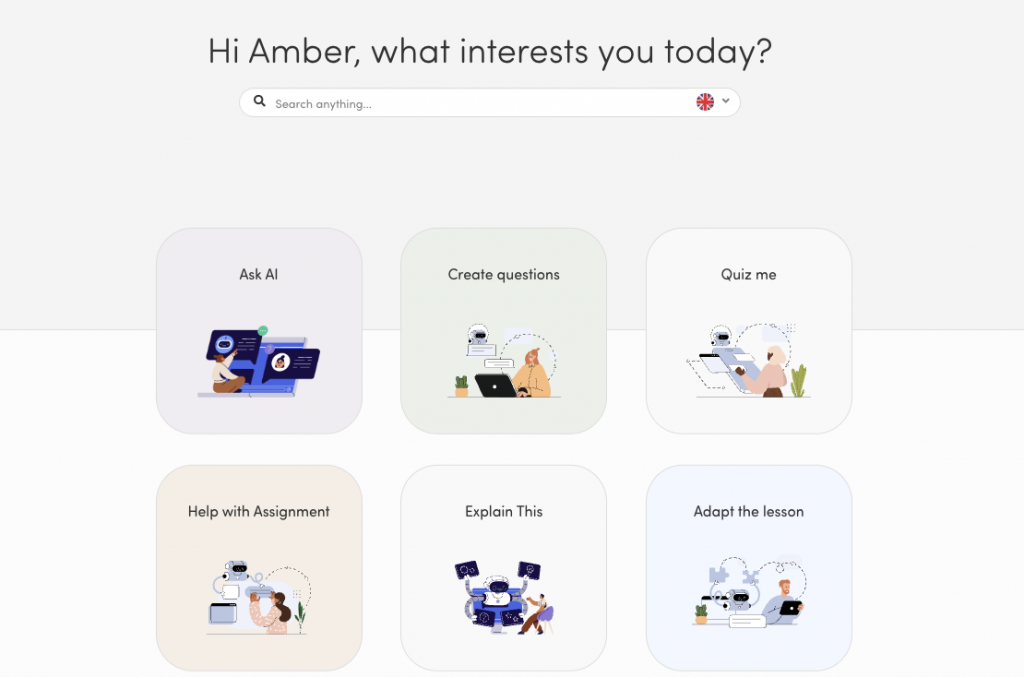
Learning, listening, and adapting
What sets Skolon apart isn’t just their initial idea, but how they keep adapting. Oliver and his team put a premium on feedback: “By keeping a close eye on societal trends and listening to our users’ needs, we remain adaptable and always evolving. Development never stands still at Skolon.” This readiness to listen and course-correct keeps things relevant, not stagnant.
Swedish roots, global relevance
Simplicity is often easier to talk about than to practice. Yet, it’s a value that runs deep in Skolon’s Swedish roots, and Oliver is open about it: “One of the most common questions we ask ourselves during product development is: ‘How can we make this moment even easier? Even clearer?’” It’s an approach that translates across borders. No one has time for unnecessary complications, whether they’re in a Swedish classroom or a UK office.
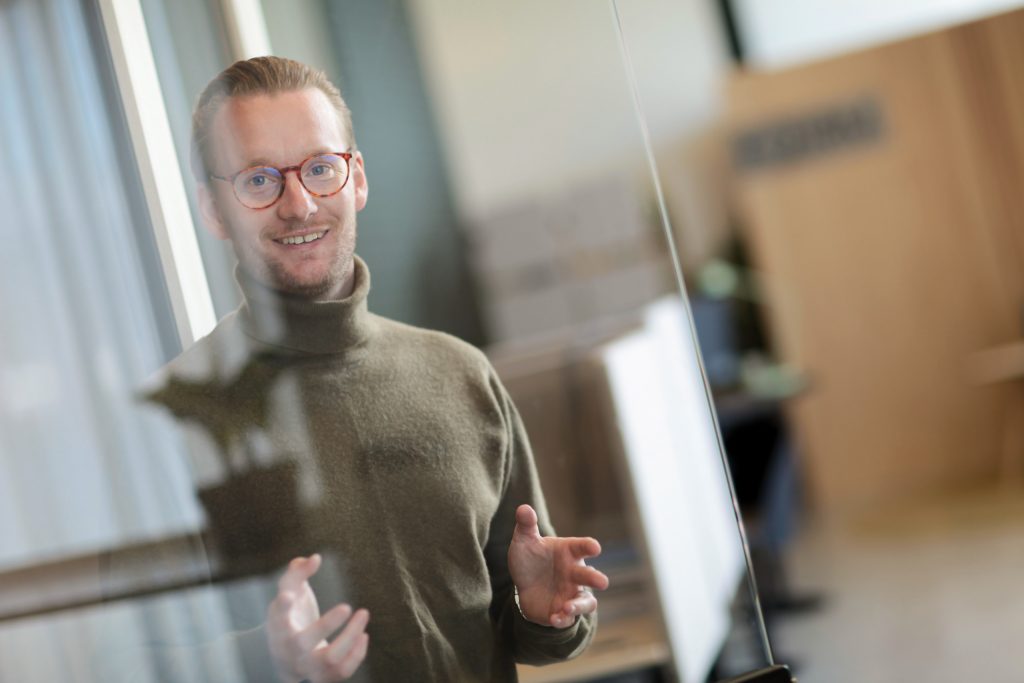
Collaboration as a strength
Strength comes from bringing the right people and tools together. Skolon’s platform is built as a hub, connecting different educational technology providers to its users. “Our entire business idea is built on the importance of collaboration,” Oliver explains. The real benefits of this setup are twofold: schools get a greater choice of tools, and providers find new audiences. As Skolon expands, its partnerships with global brands underline the value of seeking out the right collaborations.
Staying ready for what’s next
One year it’s GDPR, another it’s remote learning, then AI. Skolon’s story is one of never standing still, but always trying to build for the real world and its changing demands. “Our greatest opportunities lie ahead – and we intend to be the ones leading the way when it comes to edtech innovation,” says Oliver. It’s a mindset that will feel familiar to anyone focused on long-term success.
Building for people, not just technology
Skolon’s greatest lesson isn’t about software, but about people. Keep it simple, listen closely, adapt when needed, and focus on making things work for the user. Those lessons are universal – valuable for leaders and decision- makers everywhere who seek not just innovation, but real results that make a difference in everyday life.
Information
Share this story
Subscribe
Would you like our newest articles delivered to your inbox? Sign up now!
Written by: Maja Stenberg
In a world increasingly shaped by digital tools, how do we integrate technology without over- complicating things? Education is one arena where this challenge is particularly visible, but it’s also one that holds valuable insights for anyone responsible for introducing new systems, be it in schools or in business. Skolon, led by CEO Oliver Lundgren, is an example of what can happen when digital change is approached with a practical touch and a focus on genuine user experience.
Skolon’s founding idea is both bold and straightforward: everyone should have access to digital learning, without headaches. “We achieve this through our platform, which gathers all digital school tools and educational materials in one place, with a single login and accessible with one click,” Oliver says. It’s a concept that could just as easily apply in a business setting: cut through digital clutter and make resources visible and accessible.
For educators (and, by parallel, for organisational teams), this approach cuts down on wasted time. “Teachers and students were, on average, losing ten minutes per lesson just trying to remember the right login credentials, navigate to the correct tools, and deal with technical issues.” With Skolon, these frustrations have given way to a simpler routine. The tools aren’t only gathered in one place; they also work together. No one is left navigating a maze when they should be focusing on getting things done.
Time as the most valuable asset
The practical impact for the +875,000 users of Skolon is clear: less energy spent wrestling with technology means more time for things that matter, whether that’s classroom teaching or core business operations. “It brings clarity for teachers and students alike: ‘Here’s exactly what you need – nothing else,’” says Oliver. The underlying systems may be advanced, but the end result is a straightforward and intuitive experience for the users.
Responding to new technology thoughtfully
The rise of new technologies, especially AI, has brought both optimism and caution to the edtech sphere. Oliver recognises both the potential and the hesitations. “We truly believe that AI brings new opportunities to simplify tasks, save time in the everyday workflow, and create more space for what really matters in the classroom – learning.” Skolon’s own AI tool, Skolup, was designed specifically for schools, reflecting both innovation and responsibility. Organisations everywhere know the importance of these twin goals: using data and automation, but keeping trust and ease of use at the centre.

Learning, listening, and adapting
What sets Skolon apart isn’t just their initial idea, but how they keep adapting. Oliver and his team put a premium on feedback: “By keeping a close eye on societal trends and listening to our users’ needs, we remain adaptable and always evolving. Development never stands still at Skolon.” This readiness to listen and course-correct keeps things relevant, not stagnant.
Swedish roots, global relevance
Simplicity is often easier to talk about than to practice. Yet, it’s a value that runs deep in Skolon’s Swedish roots, and Oliver is open about it: “One of the most common questions we ask ourselves during product development is: ‘How can we make this moment even easier? Even clearer?’” It’s an approach that translates across borders. No one has time for unnecessary complications, whether they’re in a Swedish classroom or a UK office.

Collaboration as a strength
Strength comes from bringing the right people and tools together. Skolon’s platform is built as a hub, connecting different educational technology providers to its users. “Our entire business idea is built on the importance of collaboration,” Oliver explains. The real benefits of this setup are twofold: schools get a greater choice of tools, and providers find new audiences. As Skolon expands, its partnerships with global brands underline the value of seeking out the right collaborations.
Staying ready for what’s next
One year it’s GDPR, another it’s remote learning, then AI. Skolon’s story is one of never standing still, but always trying to build for the real world and its changing demands. “Our greatest opportunities lie ahead – and we intend to be the ones leading the way when it comes to edtech innovation,” says Oliver. It’s a mindset that will feel familiar to anyone focused on long-term success.
Building for people, not just technology
Skolon’s greatest lesson isn’t about software, but about people. Keep it simple, listen closely, adapt when needed, and focus on making things work for the user. Those lessons are universal – valuable for leaders and decision- makers everywhere who seek not just innovation, but real results that make a difference in everyday life.
Share this story
Subscribe
Would you like our newest articles delivered to your inbox? Sign up now!

